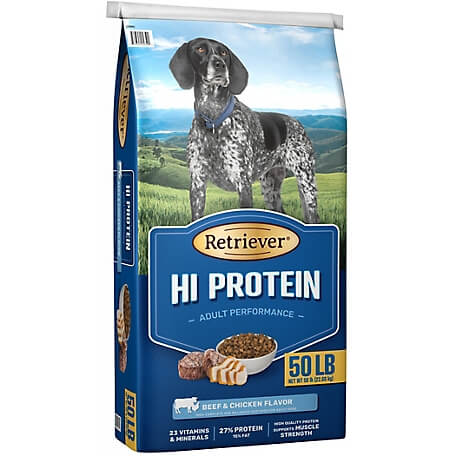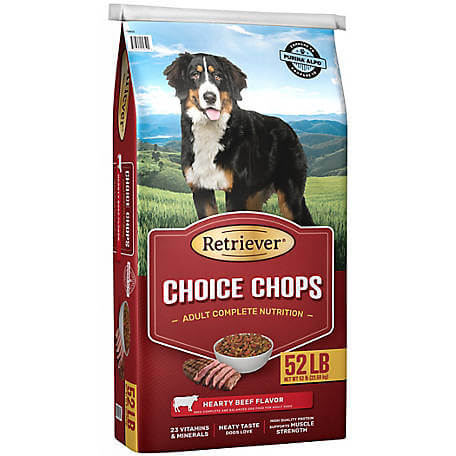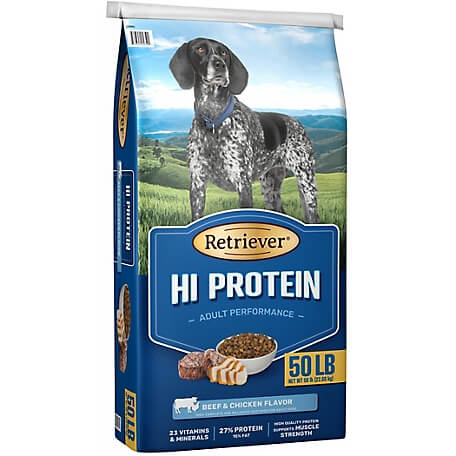Information pertaining to the manufacture of Retriever Dog Food is very scarce.
However, TSC states that all its products are manufactured in the USA under high production standards.
The company’s headquarters and primary manufacturing plant is located in Brentwood, Tennessee.
The locations of TSC’s other manufacturing sites are not in the public domain.
Nonetheless, the company operates 9 logistics centers in the country where supplies and manufactured products are packaged or sourced.
These include facilities in Casa Grande, AZ; Frankfort, NY; Macon, GA, Waco, TX, Pendleton, ID, and Hagerstown, MD.
The most recently opened logistic center is based in Navarre, OH. This facility covers approximately 895,000 square feet and is the most expensive of the 9 as it took up a massive investment of around $70 million.
TSC sources its ingredients from different local vendors. Purina Animal Nutrition is the company’s leading supplier of premixes, complete feeds, ingredients, and mineral supplements used in dog food formulas.
The vendor was awarded the highly prestigious 2021 Top TSC Vendor Partner Award due to its continuous and innovative support of TSC’s manufacturing processes.
Related: Where Is Royal Canin Dog Food Made?
What Company Makes Retriever Dog Food?
This dog food brand is a product of Tractor Supply Company (TSC).
The company was founded in 1939 by Charles Schmidt.
At the time, the company was a retail establishment for tractor parts based in Chicago.
Over the next few decades, TSC enjoyed significant success as it managed to open more retail centers in Iowa, Minnesota, and Nebraska.
It also set up shop in Canada in 1967, was included in the New York Stock Exchange in 1959, and went public through NASDAQ (National Association of Securities Dealers Automated Quotations) incorporation in 1994 under the TSCO symbol.
TSC’s expansion continued through the late 1990s and early 2000s as the company began rolling out various brands for people with an interest in gardening, livestock, and pets.
Among the brands rolled out during this period is Retriever Dog Food.
Today, TSC is one of the leading livestock and pet products retailers in the country with almost 2000 retail stores distributed across 49 states, around 20,000 products, and more than 20 million loyalty program members.
Retriever Dog Food is sold exclusively in TSC retail stores. Retriever Mini Chunks is one of the brand’s most commonly bought varieties as it is fit for all dogs regardless of age. Other varieties include dry or canned puppy formulas and high-protein formulas for elderly dogs.
Are Retriever Dog Foods Made in China?
Modern pet owners are wary of pet products made or sourced from China.
A ‘Made in China’ label is today considered an outright red flag.
This is due to the 2007 pet food poisoning scandal whereby the FDA found traces of cyanuric acid and melamine, both of which are toxic to dogs, in pet food ingredients sourced from this Asian nation.
Fortunately, none of Retriever Dog Food’s ingredients are sourced from Chinese vendors.
This brand is safe for your pet’s consumption as it is manufactured according to the highest safety standards and all ingredients are sourced from certified vendors.
Related: Where Is Canidae Dog Food Made?
As an Amazon Associate, we may receive a small commission from qualifying purchases but at no extra cost to you. Learn more. Amazon and the Amazon logo are trademarks of Amazon.com, Inc, or its affiliates.



